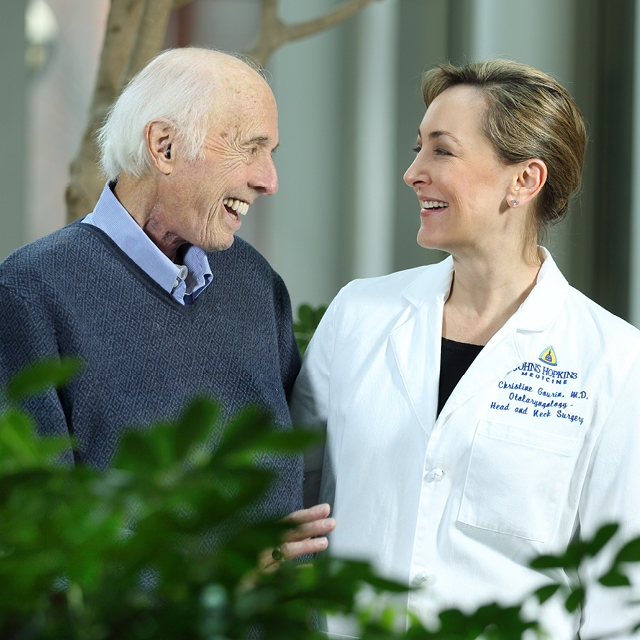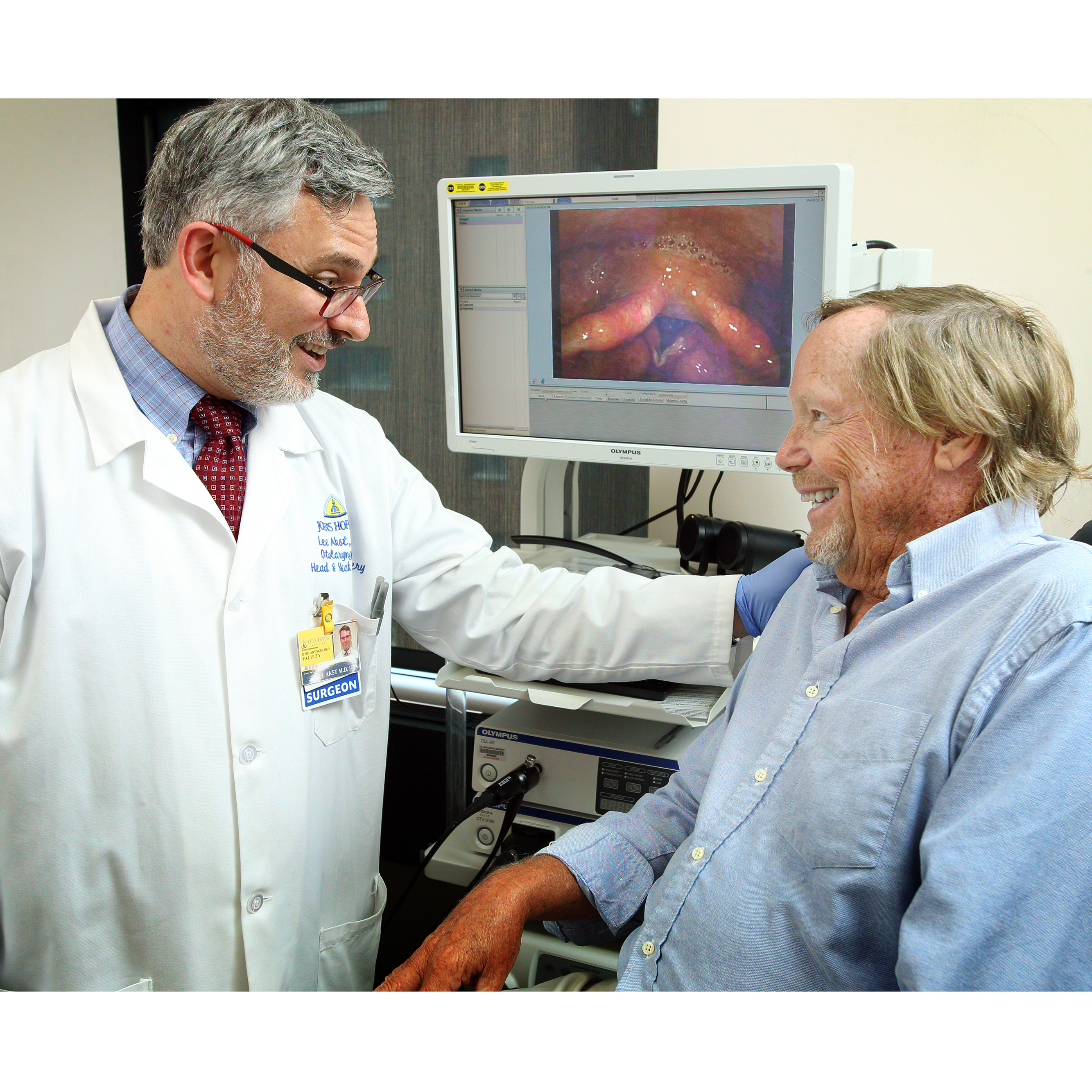Even in high school, fourth-year resident Ian-James Malm says he was interested in a career involving biology and pathology.
“In college, I realized what I was most interested in was human biology and the application to medicine,” he says. His natural drive toward research lies in “trying to figure out why things happen, and how we can prevent them and treat certain diseases.”
In fact, the opportunities to conduct research is what attracted Malm to Johns Hopkins for medical school. As a student, he worked with head and neck surgeon Young Kim studying tumor immunology. He then decided to stay on for residency, where he has worked with head and neck surgeon Carole Fakhry evaluating proposed staging systems for head and neck cancers. During his time here, Malm has coauthored several peer-reviewed journal articles on different topics and presented some of his findings at national meetings. In 2017, he received the American Laryngological Society’s Resident Research Award.
“My interest is mostly in the basic science,” Malm says. “I like the bench work, figuring out how we can go from the basic science research to clinical translational research.”
In one ongoing project, Malm has been working with laryngologist Simon Best to try to determine why some nonsmokers develop laryngeal cancer, which is classically strongly associated with smoking. Comparing tumors of smokers and nonsmokers diagnosed with laryngeal cancers under the microscope, Best, Malm and colleagues found the biomarkers look very similar. Now, Malm says, “we want to get more samples from other parts of the country and the world and try to figure out if the same thing or something else is going on elsewhere” to further tease this out.
“We’re hoping to really figure out why these nonsmokers develop laryngeal cancer,” he says. “Hopefully in the future we can better educate patients on why they develop the cancer and find risk factors for nonsmokers who develop laryngeal cancer. One thought is that it was due to human papilloma virus (HPV), which causes oropharyngeal cancer in the tissues of the throat. But we’re not finding any higher rate of HPV in the nonsmokers, so we don’t think it’s due to the virus.” The causes could be anything from gastric reflux to genetic factors to plain old bad luck, Malm says.
Malm has done some of the most comprehensive work ever conducted in this patient group, says Best: “He has really spearheaded a number of novel techniques for looking at this population and taken the initiative in a whole line of investigation that people have not looked at in detail before. That’s a big endeavor and a big accomplishment for a resident.”
Upon finishing his residency in June 2019, Malm says he’ll look for work in comprehensive otolaryngology, so he can keep his fingers on the pulse of different areas.
He should be successful, Best notes: “He’s a creative researcher who has tremendous skills in terms of thinking of new ideas.”


